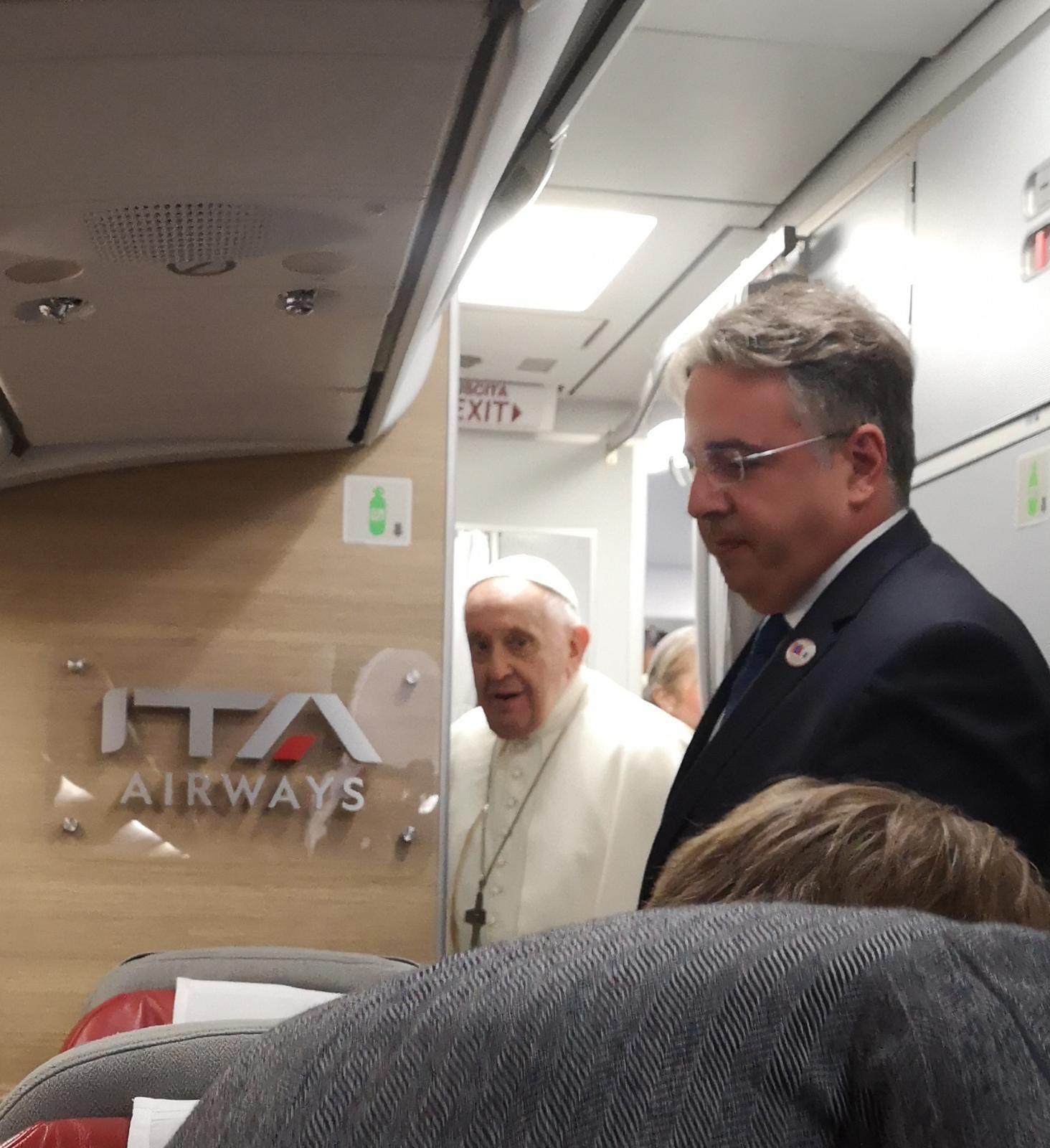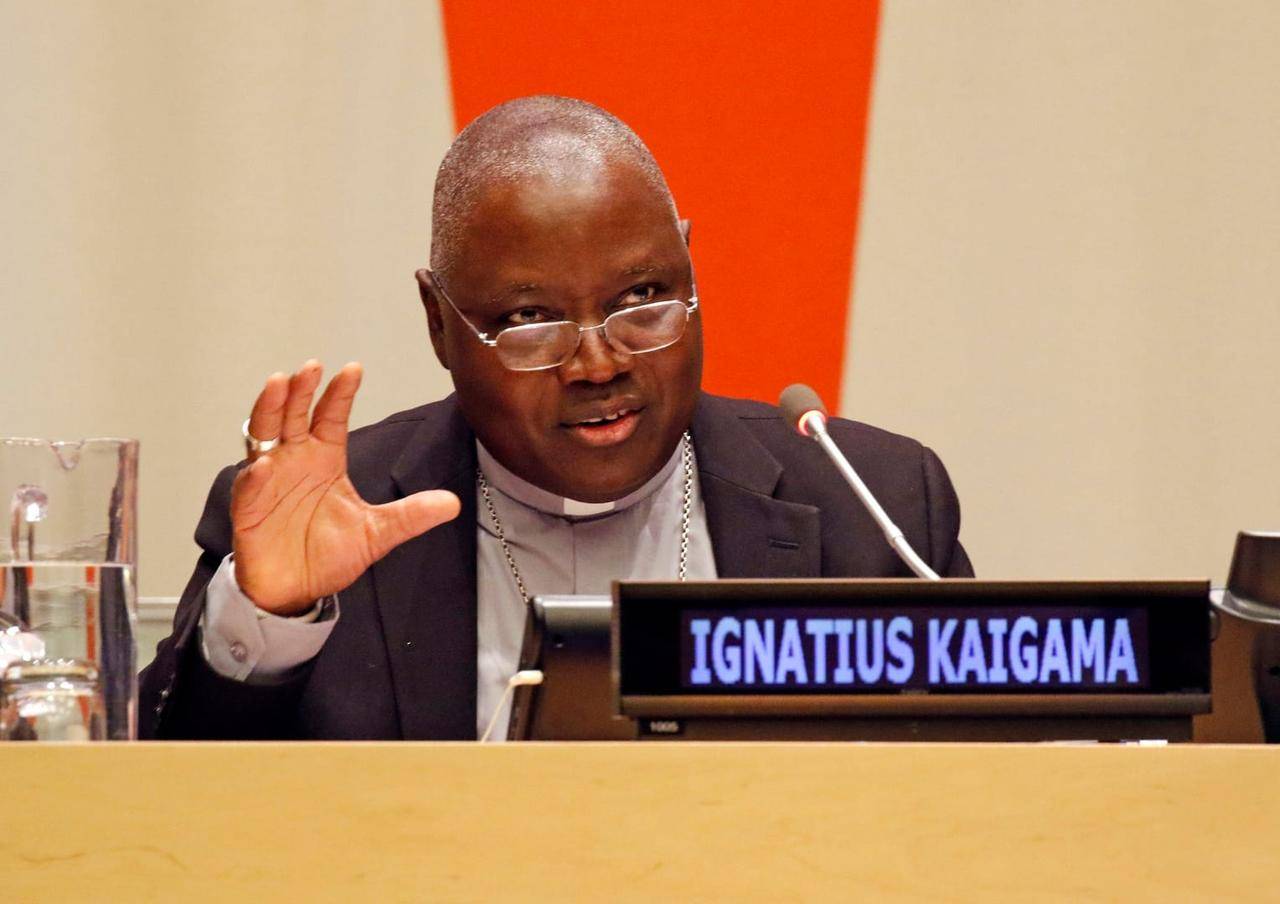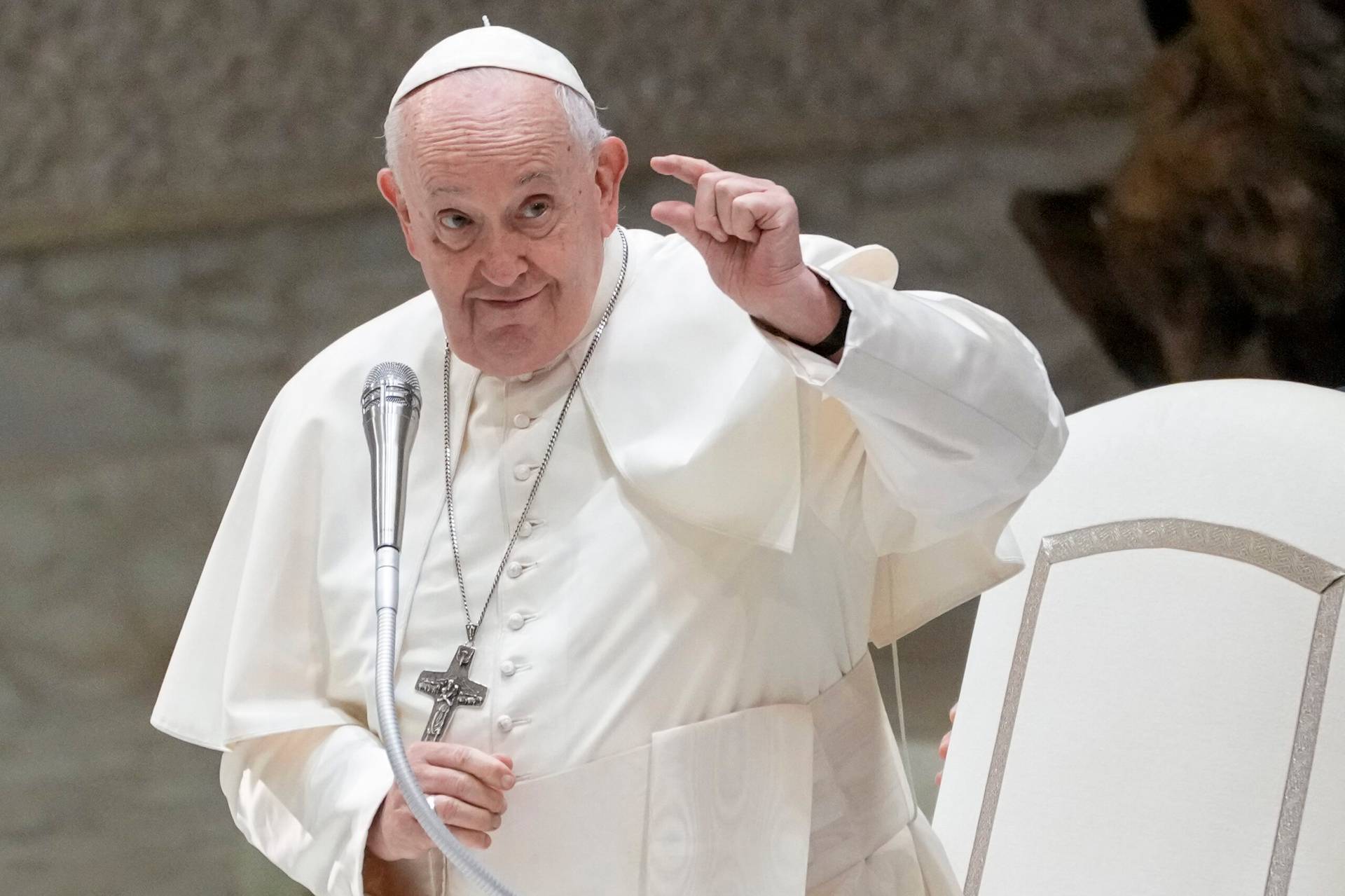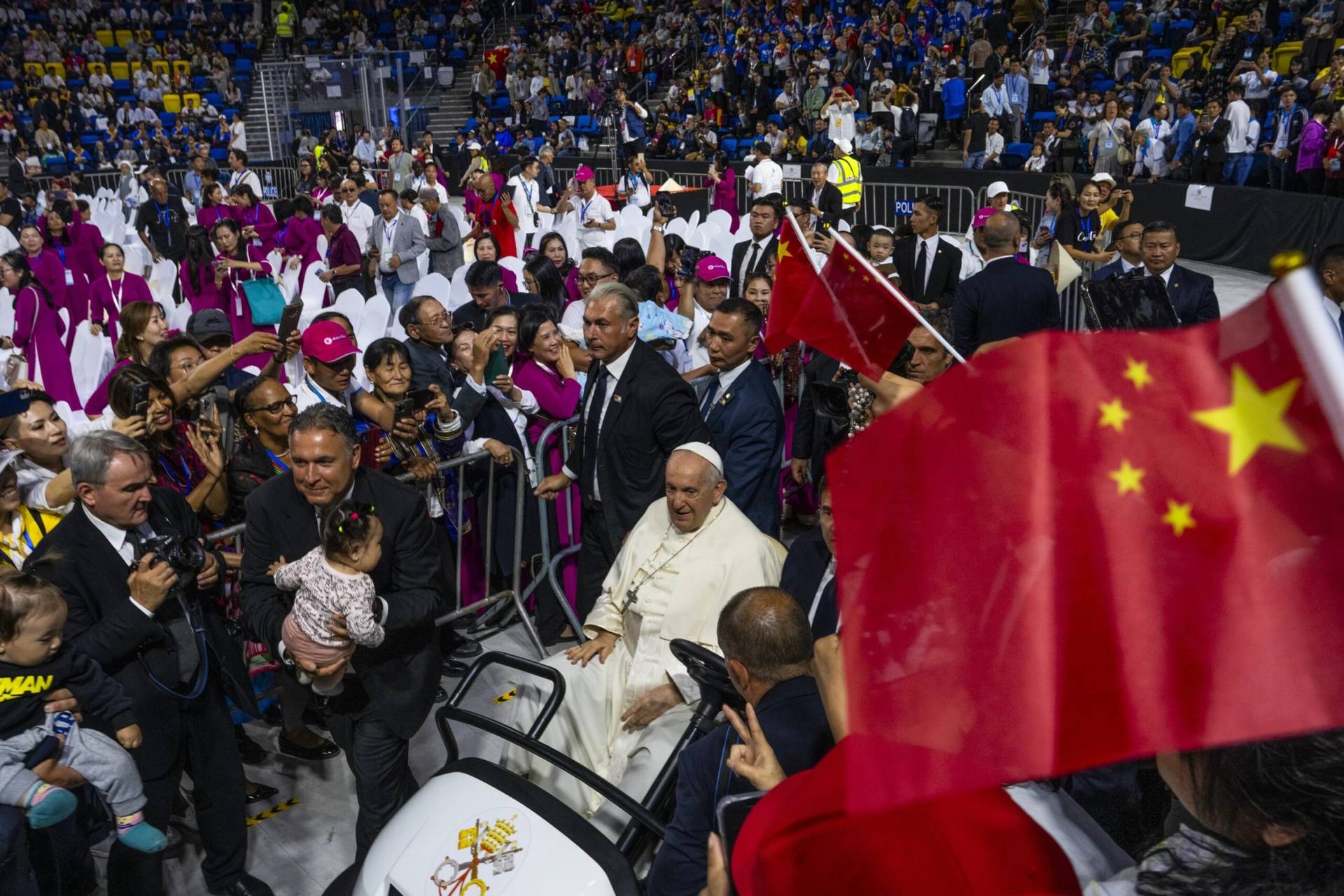ABOARD THE PAPAL PLANE – On his flight from Rome to Ulaanbaatar for a 4-day trip to Mongolia, Pope Francis told journalists that he finds diplomacy difficult and recommended listening to a prominent Russian composer to get a feel for the region.
In a brief greeting on his Aug. 31 ITA Airways flight, the pope said that going to Mongolia meant visiting a small people, but “a great culture.”
“I think that it would do us well to understand this large and great silence,” he said, referring to Mongolia’s vast nomadic lands and culture of silence, saying, “It will help us to understand, but not with the intellect, with the senses.”
“Mongolia is understood with senses,” he said, and recommended listening to “the music of Borodin, who was able to express what this length and greatness of Mongolia.”
The reference was to Alexander Borodin, a Romantic Russian composer and nationalist who lived from 1833-1887 and who belonged to a group of progressive Russian composers called “The Five,” or, “The Mighty Handful,” and who were interested in composing modern Russian music.
Borodin’s famed piece, “In the Steppes of Central Asia,” a symphonic poem composed in in 1880, is a poem that paints a picture in music of the interaction between Russians and Asians in the steppe lands.
The remark comes days after Pope Francis made waves in Ukraine and beyond when he told a group of Russian youth via video call that they are “heirs of the great Mother Russia.”
The remarks were met with immediate backlash from Ukrainians, who called the language “imperialist propaganda,” but were praised as “balanced” by Russian authorities.
His recommendation to listen to Borodin’s music will likely add further complication to the situation, as the remark will undoubtedly get a mixed reception.
Pope Francis during his flight greeted journalists traveling with him individually, as he does for every international trip, at one point commenting on diplomacy.
Asked by a member of the press corps if he found diplomacy difficult, the pope replied, “Yes, you don’t know how difficult it is. Sometimes you need a sense of humor.”
He was also asked about comments he made about American Catholics during a conversation with Jesuits in Portugal, during which he called out a “reactionary attitude” and a “climate of closure” on the part of some who he said replace faith with ideology.
Francis seemed unbothered by the backlash his comments generated among American Catholics, saying, “Yes, they got mad, but move on, move on.”
Given that Mongolia has an almost 3,000-mile border with China, the fourth largest international border in the world, many observers see this trip in part as an opportunity for Pope Francis to address Beijing. Francis flew over China en route to Mongolia Friday, the second time he’s been granted permission to do so after he also crossed Chinese airspace in 2014 on his way to South Korea.
As is customary, the pontiff dispatched telegrams to the heads of state of the 11 nations he crossed over during the flight, in this case including one to Chinese President Xi Jinping.
“I send greetings of good wishes to your excellency and the people of China as I pass through your country’s airspace en route to Mongolia,” the pope said. “Assuring you of my prayers for the wellbeing of the nation, I invoke upon all of you the divine blessings of unity and peace.”
The pontiff will be on a formal visit to Mongolia through Monday, but will have a limited schedule, with just five events on his itinerary.
He will meet with national civil authorities and the country’s clergy and missionaries on Saturday, and on Sunday he will preside over an ecumenical liturgy and celebrate Mass, which is expected to be attended by Mongolia’s small Catholic population as well as Catholics traveling from nearby countries, including China and Russia.
Pope Francis will meet with representatives of charitable organizations and inaugurate a new charitable center on Monday before returning to Rome.
Follow Elise Ann Allen on X: @eliseannallen














